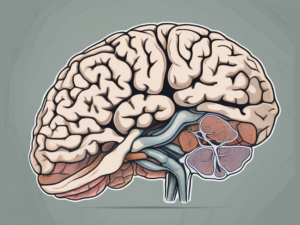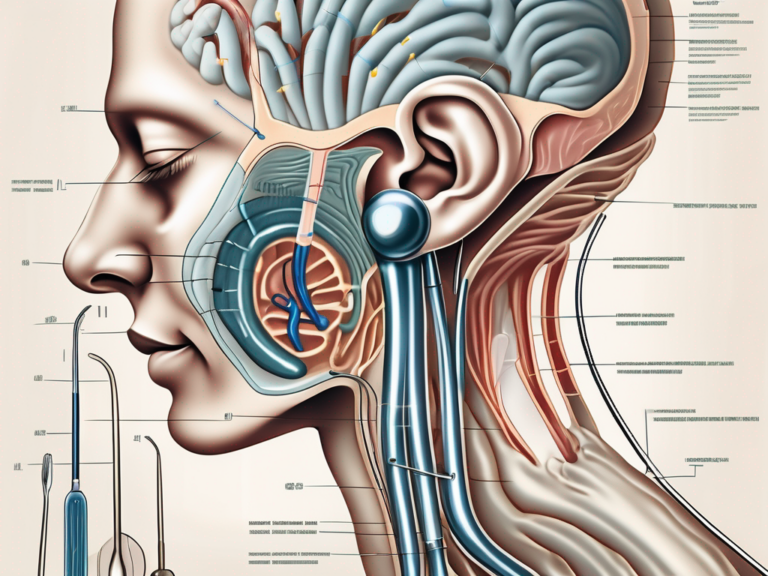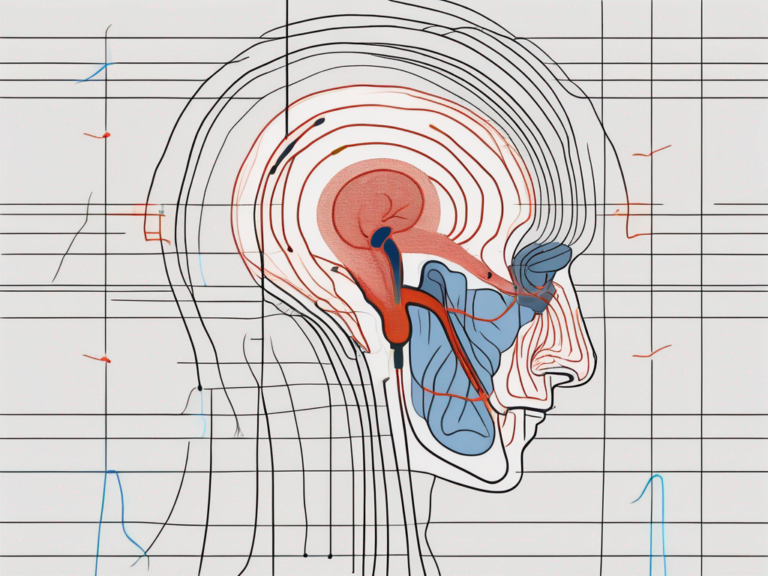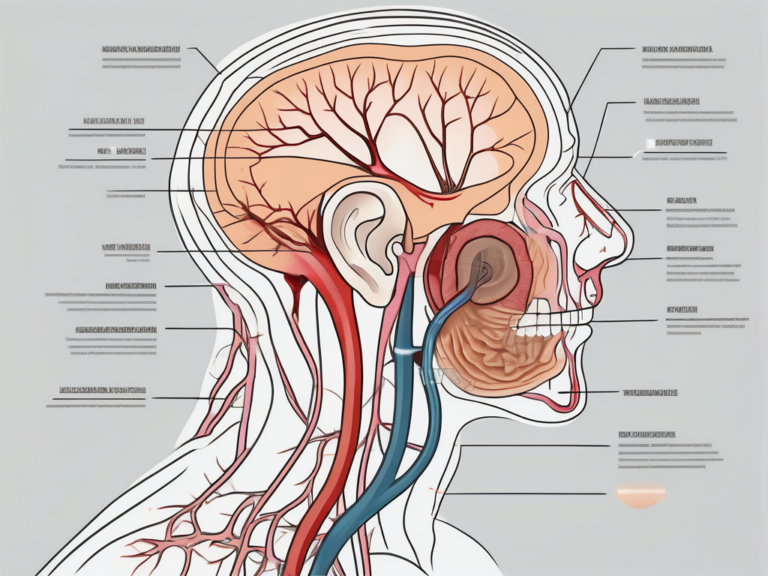Meclizine is a medication that is commonly used to treat various symptoms of vestibular disorders. Understanding how meclizine works and its specific effects on the vestibular nerve is crucial in comprehending its therapeutic implications. This article aims to delve into the intricate relationship between meclizine and the vestibular nerve, shedding light on its role in medicine, common uses, potential side effects, and the clinical implications.
Understanding Meclizine and Its Uses
Meclizine, also known as antivert, belongs to a class of medications called antihistamines. It is primarily utilized for its antiemetic and antivertigo properties, making it an effective treatment option for vestibular disorders. These disorders, which affect the inner ear and the vestibular nerve, can cause debilitating symptoms such as dizziness, vertigo, and nausea.
While meclizine’s exact mechanism of action is not yet fully understood, it is believed to work by suppressing neural activity in the vestibular pathways, thereby reducing the sensation of dizziness and vertigo. It also has anticholinergic effects, which contribute to its efficacy in alleviating symptoms associated with motion sickness.
Meclizine is a versatile medication that has various applications in the field of medicine. Its role extends beyond the treatment of vestibular disorders, encompassing a range of conditions and situations where its properties can be beneficial.
The Role of Meclizine in Medicine
In the realm of medicine, meclizine plays a crucial role in the management of vestibular disorders. By targeting the symptoms associated with these conditions, meclizine improves the quality of life for patients and allows them to regain their balance and equilibrium. It is often prescribed as part of a comprehensive treatment plan that may include physical therapy and lifestyle modifications.
Moreover, meclizine has been found to be effective in managing symptoms related to other conditions as well. For instance, it is sometimes used in the treatment of nausea and vomiting caused by chemotherapy or radiation therapy. The antiemetic properties of meclizine help alleviate these distressing side effects, enabling patients to tolerate their cancer treatments more comfortably.
Furthermore, meclizine has shown promise in the management of migraine-associated vertigo. This condition, characterized by severe headaches and vertigo, can significantly impact a person’s daily life. Meclizine’s ability to alleviate vertigo symptoms makes it a valuable tool in the treatment of this specific subtype of migraines.
Common Uses of Meclizine
Meclizine is primarily used to treat symptoms related to vestibular disorders, such as Ménière’s disease, benign paroxysmal positional vertigo (BPPV), and vestibular neuritis. It is also prescribed for individuals experiencing dizziness due to motion sickness or inner ear infections. However, it is essential to consult with a healthcare professional before starting any medication to ensure its appropriateness for individual circumstances.
In addition to its primary uses, meclizine has found applications in other areas as well. Some individuals find relief from symptoms of anxiety and tension by using meclizine as an adjunctive treatment. Its sedative properties can help calm the mind and promote relaxation, making it a potential option for those experiencing anxiety-related symptoms.
Furthermore, meclizine has been studied for its potential role in managing symptoms of vertigo associated with certain psychiatric disorders. While more research is needed in this area, preliminary studies have shown promising results, suggesting that meclizine may have a broader range of applications beyond its current uses.
The Vestibular Nerve Explained
The vestibular nerve, a component of the eighth cranial nerve, plays a critical role in maintaining our sense of balance and spatial orientation. It connects the inner ear’s vestibular system to the brainstem, transmitting sensory information regarding head movements and position changes. This information allows our brain to regulate posture, coordinate eye movements, and provide a stable perception of the surrounding environment.
Anatomy of the Vestibular Nerve
The vestibular nerve is composed of two main branches: the superior vestibular nerve and the inferior vestibular nerve. These branches originate from the vestibular ganglion, which is located in the inner ear. The superior vestibular nerve primarily innervates the anterior and horizontal semicircular canals, whereas the inferior vestibular nerve innervates the posterior semicircular canal and the saccule.
The superior vestibular nerve, responsible for transmitting sensory signals from the anterior and horizontal semicircular canals, plays a crucial role in detecting rotational movements of the head. When we turn our head to the side or rotate it, the superior vestibular nerve sends signals to the brain, allowing us to maintain our balance and adjust our posture accordingly.
On the other hand, the inferior vestibular nerve is responsible for transmitting sensory signals from the posterior semicircular canal and the saccule. The posterior semicircular canal detects head movements in the vertical plane, while the saccule detects linear acceleration, such as when we are in an elevator or a moving vehicle. These signals are essential for our brain to accurately interpret our body’s position in space and make the necessary adjustments to maintain balance.
Functions of the Vestibular Nerve
One of the key functions of the vestibular nerve is to maintain postural stability. It provides vital feedback to the central nervous system about our body’s position in space, allowing for precise adjustments to prevent falls and maintain balance. When the vestibular nerve is functioning properly, we can walk, run, and perform various activities without feeling dizzy or unsteady.
In addition to postural stability, the vestibular nerve also plays a crucial role in coordinating eye movements. When we move our head, the vestibular nerve sends signals to the brain, which in turn controls the muscles that move our eyes. This coordination ensures that our vision remains stable during head movements, preventing blurred or double vision.
Furthermore, the vestibular nerve contributes to our sense of spatial orientation. It provides the brain with information about the position and movement of our head, allowing us to perceive the world around us accurately. This information is integrated with visual and proprioceptive cues to create a comprehensive understanding of our surroundings.
By understanding the intricate functions and anatomy of the vestibular nerve, we gain insight into the potential impact of meclizine on this vital neural pathway. Meclizine, a medication commonly used to treat motion sickness and vertigo, acts by blocking certain receptors in the vestibular system, reducing the transmission of sensory signals to the brain. This, in turn, alleviates symptoms such as dizziness and nausea, allowing individuals to regain their balance and enjoy a more stable perception of their environment.
The Interaction Between Meclizine and the Vestibular Nerve
Meclizine’s effects on the vestibular nerve are multifaceted, offering relief for individuals experiencing vestibular disorders. By modulating neural activity within the vestibular pathways, it effectively mitigates symptoms such as dizziness, vertigo, and nausea. The exact mechanisms through which meclizine interacts with the vestibular nerve are still the subject of ongoing research. Nevertheless, its clinical benefits are well-documented and have been utilized for decades.
How Meclizine Affects the Vestibular Nerve
Meclizine’s main action on the vestibular nerve is thought to involve antagonism of histamine receptors and the subsequent reduction in nerve firing. By blocking these receptors, meclizine effectively dampens the vestibular system’s hyperactivity, resulting in the alleviation of symptoms associated with vestibular disorders. However, it is important to note that while meclizine provides symptomatic relief, it does not act as a cure for the underlying condition.
Furthermore, studies have shown that meclizine may also have an impact on other neurotransmitter systems involved in vestibular function. For example, it has been suggested that meclizine’s antagonistic effects on muscarinic acetylcholine receptors contribute to its therapeutic effects. By reducing the activity of these receptors, meclizine can help regulate the transmission of signals within the vestibular pathways, further aiding in the management of symptoms.
Additionally, meclizine’s ability to modulate the release of certain neurotransmitters, such as serotonin, may play a role in its effectiveness. Serotonin is known to be involved in the regulation of mood, appetite, and sleep, but it also has implications for vestibular function. By influencing serotonin levels, meclizine may indirectly impact the vestibular system, providing additional relief for individuals with vestibular disorders.
It is worth mentioning that the precise dosages and treatment duration of meclizine should be determined by a healthcare professional. Individual variability in response to the medication necessitates a tailored approach to maximize efficacy while minimizing potential side effects. Regular monitoring and adjustment of the treatment plan may be necessary to ensure optimal outcomes.
The Science Behind Meclizine’s Impact on the Vestibular Nerve
Scientific studies have provided insights into the efficacy of meclizine in addressing vestibular symptoms. Research suggests that meclizine’s ability to antagonize histamine receptors, particularly H1 receptors, contributes to its effectiveness in reducing the intensity and frequency of vertigo episodes. Histamine is known to play a role in the regulation of vestibular function, and by blocking its receptors, meclizine can help restore balance and alleviate symptoms.
Furthermore, meclizine’s anticholinergic properties play a role in mitigating symptoms, as they reduce vestibular inputs to the central nervous system. By inhibiting the activity of acetylcholine, meclizine helps modulate the transmission of signals within the vestibular pathways, leading to a reduction in dizziness and vertigo.
While these findings provide valuable scientific evidence, it is essential to consult with a healthcare professional for an accurate diagnosis and appropriate treatment guidance. Vestibular disorders can have various underlying causes, and a comprehensive evaluation is necessary to determine the most effective treatment approach. Additionally, healthcare professionals can provide guidance on lifestyle modifications and other interventions that may complement the use of meclizine in managing vestibular symptoms.
Potential Side Effects of Meclizine on the Vestibular Nerve
Meclizine is a medication commonly prescribed to alleviate symptoms associated with vestibular nerve disorders. While it is generally well-tolerated by most individuals, like any medication, meclizine may cause potential side effects. It is important to be aware of these effects and discuss any concerns with a healthcare professional.
Short-term side effects of meclizine are typically mild and transient. The most commonly reported side effects include drowsiness, dry mouth, blurred vision, and constipation. These effects are usually temporary and subside as the body adjusts to the medication. However, it is important to note that individual responses to meclizine can vary, and some individuals may experience these side effects more prominently than others.
Drowsiness is a common side effect of meclizine and can affect daily activities that require alertness, such as driving or operating heavy machinery. It is advisable to avoid engaging in such activities until the drowsiness subsides. Additionally, dry mouth may occur due to the anticholinergic properties of meclizine, which can reduce saliva production. Staying hydrated and using sugar-free candies or gum can help alleviate this discomfort.
Blurred vision is another potential side effect of meclizine. This occurs due to the medication’s impact on the nervous system, which can temporarily affect visual acuity. If blurred vision persists or worsens, it is important to consult a healthcare professional for further evaluation.
Constipation is a less common side effect but can occur as meclizine affects the gastrointestinal system. Adequate hydration, a fiber-rich diet, and regular exercise can help prevent or alleviate constipation. In some cases, a healthcare professional may recommend a stool softener or laxative to manage this side effect.
While short-term side effects of meclizine are generally well-tolerated by most individuals, long-term use of the medication may lead to more severe side effects. However, it is important to note that the occurrence of these effects is relatively infrequent. Continuous monitoring and open communication with a healthcare professional are crucial to ensuring optimal treatment outcomes while minimizing potential risks.
In rare cases, long-term use of meclizine may be associated with cognitive impairment or dependency. It is essential to discuss any concerns or changes in cognitive function with a healthcare professional promptly. Regular check-ups and evaluations can help monitor any potential long-term effects and ensure appropriate adjustments to the treatment plan if necessary.
It is important to remember that the benefits of meclizine in managing vestibular nerve disorders often outweigh the potential risks of side effects. However, individual responses to the medication can vary, and it is crucial to maintain open communication with a healthcare professional throughout the treatment process. They can provide guidance, address any concerns, and make any necessary adjustments to ensure the best possible outcomes for each individual.
The Clinical Implications of Meclizine’s Effect on the Vestibular Nerve
The impact of meclizine on the vestibular nerve extends beyond symptom relief in patients with vestibular disorders. Its clinical implications encompass a wide array of therapeutic applications, including postoperative management of vestibular schwannoma, control of nausea and vomiting associated with chemotherapy, and prophylaxis against motion sickness.
Meclizine, a commonly prescribed medication in the field of otolaryngology, is known for its ability to alleviate symptoms associated with vestibular disorders. By targeting the vestibular nerve, meclizine helps patients regain their quality of life by reducing vertigo, dizziness, and nausea. However, it is important to note that meclizine does not address the underlying pathology and should be used as part of a comprehensive treatment plan.
Meclizine in the Treatment of Vestibular Disorders
As a first-line treatment option for various vestibular disorders, meclizine plays a crucial role in symptom management. Its effectiveness in alleviating dizziness and vertigo has been well-documented, allowing patients to experience a significant improvement in their daily functioning. Additionally, meclizine has shown promise in reducing nausea, which is often a distressing symptom experienced by individuals with vestibular disorders.
While meclizine provides symptomatic relief, it is important to recognize that it does not address the underlying cause of vestibular disorders. Therefore, a comprehensive treatment plan that includes physical therapy aimed at vestibular rehabilitation is often recommended in conjunction with meclizine therapy. Vestibular rehabilitation exercises can help patients retrain their balance and improve their overall vestibular function.
Future Research Directions in Meclizine Use
Despite its long-standing presence in clinical practice, research on meclizine continues to evolve. Ongoing studies seek to further explore meclizine’s mechanisms of action, optimize dosing strategies, and evaluate its potential efficacy in other vestibular conditions. By expanding our understanding of meclizine’s impact on the vestibular nerve, we can develop more tailored and effective treatment approaches for patients with vestibular disorders.
One area of interest in meclizine research is its potential use in the postoperative management of vestibular schwannoma. Vestibular schwannoma, also known as acoustic neuroma, is a benign tumor that affects the vestibular nerve. Meclizine’s ability to alleviate symptoms associated with vestibular disorders makes it a potential candidate for managing postoperative symptoms in patients undergoing surgical removal of vestibular schwannoma.
Furthermore, meclizine’s antiemetic properties have been widely recognized in the field of oncology. It is commonly used to control nausea and vomiting associated with chemotherapy, providing much-needed relief to cancer patients undergoing treatment. The precise mechanisms by which meclizine exerts its antiemetic effects are still being investigated, but its ability to target the vestibular nerve may play a role in reducing chemotherapy-induced nausea and vomiting.
In addition to its current therapeutic applications, there is ongoing research exploring the potential use of meclizine in other vestibular conditions. Disorders such as Meniere’s disease, vestibular migraine, and bilateral vestibulopathy pose unique challenges in terms of symptom management. By investigating meclizine’s efficacy in these conditions, researchers aim to expand the treatment options available to patients and improve their overall quality of life.
In conclusion, meclizine plays a crucial role in managing symptoms associated with vestibular disorders by targeting the vestibular nerve. Its ability to alleviate dizziness, vertigo, and nausea has been well-documented, and it remains a widely used medication in the field of otolaryngology. As with any medication, a thorough discussion with a healthcare professional is essential before initiating meclizine treatment to ensure its appropriateness and to address any concerns or potential risks.








+ There are no comments
Add yours